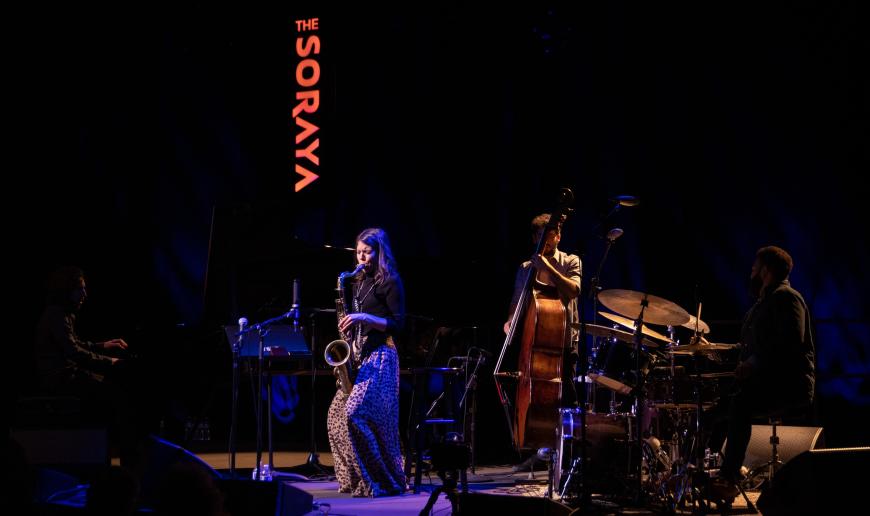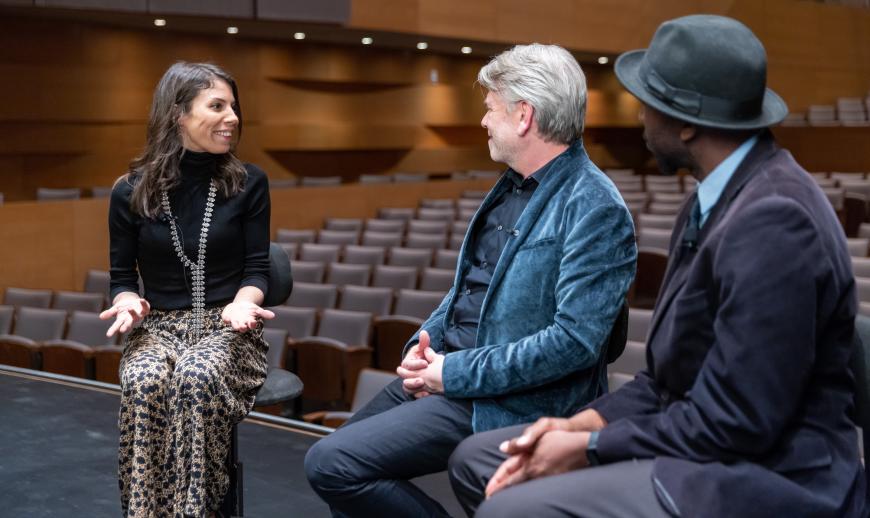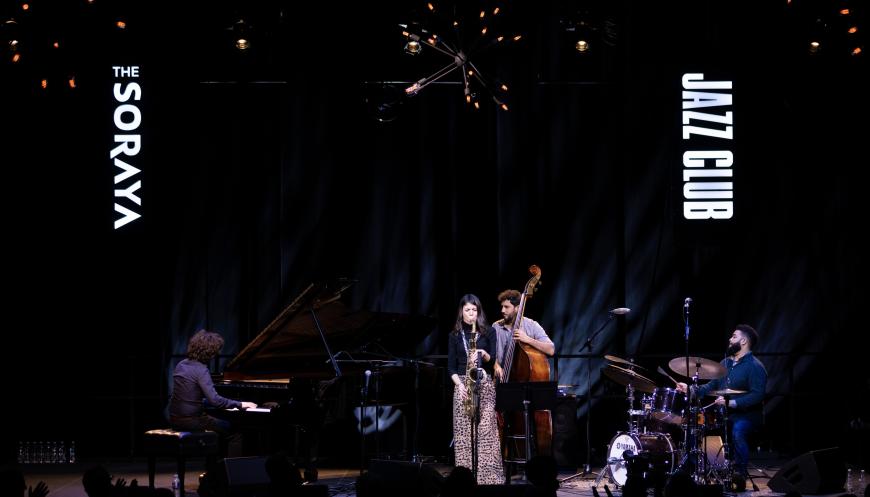
They call it Jazz at Naz — the winter jazz festival within The Soraya complex at CSU Northridge. Naz is shorthand for Nazarian, as in Younes and Soraya Nazarian, whose gift prompted the naming of the campus performing arts center.
This year, the second edition of the festival was scheduled to be a five-concert series over 10 days, but The Soraya was dealt a double blow. The first concert, featuring Christian McBride’s The Movement Revisited program on Feb. 2, regrettably had to be canceled due to “COVID-related circumstances.” Then the final concert, with the suddenly famous Samara Joy singing with the Clayton-Hamilton Jazz Orchestra Feb. 11, was postponed to March 26 because Joy was feeling “under the weather” and was following doctor’s orders to withdraw. (All tickets for the sold-out Joy concert will be honored on the later date.)
Out the window went two-fifths of the festival. Thankfully, the Melissa Aldana Quartet did show at The Soraya Jazz Club on Wednesday night (Feb. 8), though also under unusual circumstances, for the group was originally scheduled to perform here March 12 and 13, 2020 — and you-know-what scuttled that gig.

I had previously seen the Chilean tenor saxophonist burning at the 2018 Monterey Jazz Festival with an international all-star quintet of young players in the MJF on Tour band. She has traveled on some rough roads since, undergoing personal crises during the pandemic, and she has come out of the ordeal a somewhat different player. Also, she is a more prominent musician now, having last year released her first album on the prestigious Blue Note label (her sixth overall), 12 Stars, whose selections — all composed during the shutdown — made up the bulk of material for her two sets at The Soraya.
Whereas before her lodestars seemed to have been tenor saxophonists like Sonny Rollins — or going back further in time, Don Byas — Aldana’s playing Wednesday was in general somewhat softer in focus and lighter in tone, sort of like Charles Lloyd in its breathy, ethereal quality in the first number of her first set (“12 Stars”). Drummer Kush Abadey — who along with bassist Pablo Menares has been working with Aldana for many years — contributed an encyclopedia of subtle taps on his drumheads, rims, and cymbals. During “Falling,” the foursome began to build up a complex head of steam, with heavy chords on the Steinway from pianist Gadi Lehavi and Aldana concentrating upon long tones, eventually building to a peak of what sounded like an emotional catharsis.

Other numbers, like “The Bluest Eye” (named after the Toni Morrison novel and opening with a lengthy drum solo), “Intuition” (no relation to Lennie Tristano’s startling 1949 free-jazz experiment of the same name), and some new compositions, found the quartet juxtaposing carefully worked-out heads with long, nearly free, abstract workouts, occasionally to a groove but mostly not. “Emilia,” written by Aldana from a recurring dream she has about an imaginary daughter of that name, was somewhat different — a sweet tune that turns into an enigma in the manner of evolving dreams. Aldana is a work in progress — and that’s good, jazz being a fluid art form.
As before, the Jazz Club was set up on The Soraya stage, with several circular tables hugging a raised platform, six rows of tables in back of these, and five raked rows of theater seats to the rear. Black curtains block out the view of the empty hall, so you are in a spacious, black-box-like club setting. There is food and drink service, new star-shaped chandeliers hovering festively overhead, and an excellent sound system that projects faithfully without blasting. Would that every jazz club be this comfortable.



